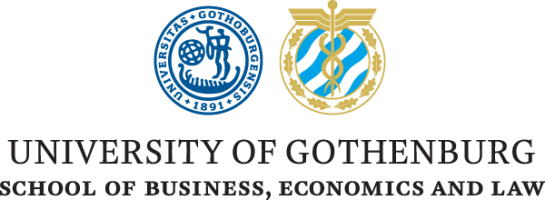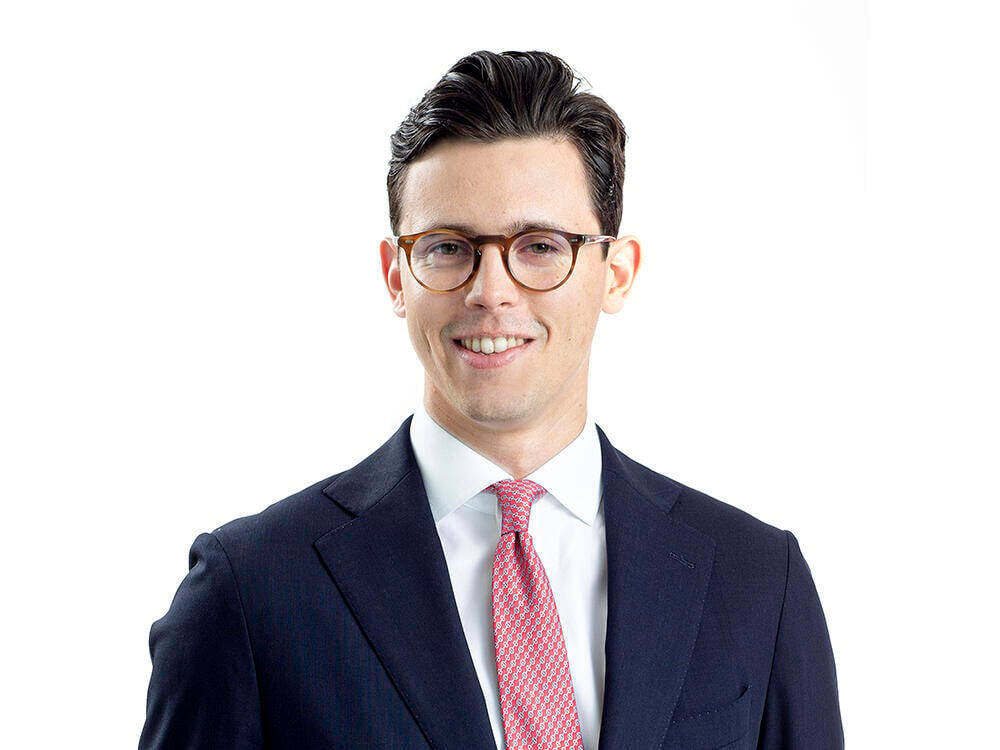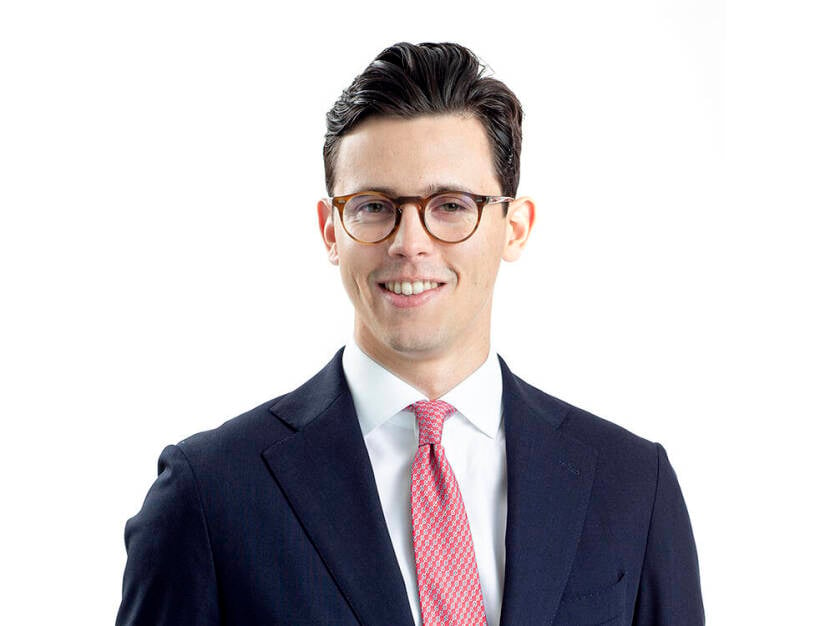
How has your programme at the School helped you in your career?
It has helped me a lot. There are a lot of concrete elements from various courses that I use daily in my work, but above all, I think my education has given me an analytical mindset and approach to how to approach problems and situations you need to handle in your work.
Do you have any tips or advice for current students?
1. Enjoy your studies!
2. Apply for internships! And do it early (early on during your Bachelor's)! Especially if you want to enter the financial industry. To do that, my tip is to try to get relevant experience for what you want, or at least suspect you want, to work with in the future. You can do this both through the student union companies at the School or extra jobs alongside your studies. This way you stand out and can make yourself relevant to others looking for work in the future. For me, working at the investment company JCE and being part of the student union company HCM (Handels Capital Management AB) as well as participating in trips organised by GIBS (Gothenburg Investment Banking Society) gave me relevant experience and insights into the financial industry to become relevant for internships at various banks.
3. When applying for internships, expect to get more no's than yes's, but apply again and again.
How was the transition from study to work?
It was very smooth and easy. I did internships during the last year of my Master's programme and in one of them, I was offered to start working immediately after the internship. This resulted in me working full-time in the spring while finishing my master's studies. I also work in an industry with many young professionals, so in many ways, it felt like a continuation of school. Many colleagues here at Carnegie, but also at my previous workplace Nordea, are in the same phase of life and we have excellent cohesion and extremely fun together in and outside the workplace, which is very similar to how it was during the study period.
How did you get your job?
I got my current job at Carnegie by previously working in a similar role at Nordea's Investment Banking department. At Nordea, I got a job through an internship. At Carnegie, we have a similar approach. We recruit junior staff primarily through our internship programme, which takes place five times a year over a ten-week period. You get to be part of our team in our department and participate in various projects and test what it would be like to work here full-time. It's ten intense and extremely educational weeks. I recommend everyone to try an internship. It is a great way to try out a role and a workplace you are interested in.
How did you reason when choosing what specialisation to study?
I was interested in shares since early on in high school and thought the basic course I took in finance during the first semesters of the Master's programme was by far the most fun. The finance specialisation of the Bachelor's degree was also completely new at the time and when I saw that it mixed, what I thought, was the best of business administration and economics, the choice felt very simple.
Do you have an example of something else that you developed or practised during your time at the School?
Difficult question! I didn't particularly practice anything, at least not consciously, but it's good to get exposure to working in a group and learn how to deal with fellow students/colleagues. During my time at university I was also involved in several organisations, was a sponsor and otherwise very active. I am convinced that this is at least as important as the hours in the library. Not only did it stimulate and develop my social skills, but it has also provided me with lifelong friends and contacts that can be important for my future professional career!
What do you do at work?
Through extra jobs, internships and involvement in student union companies, Hugo Olofsson gained relevant experience in the financial sector. This led to a job at Nordea and then at Carnegie Investment Bank, where he currently works with Corporate Finance.
I advise companies, owners and entrepreneurs in connection with corporate transactions. This can range from capital market transactions such as IPOs and new issues to M&A transactions such as acquisitions and sales of companies.






Visiting address
Universitetsplatsen 1
Org. nummer: 202100-3153
Our channels
Contact
The University of Gothenburg
Box 100
405 30 Gothenburg
Sweden
Main Switchboard
+46 31-786 00 00

studied MSc Finance
Hugo Olofsson
Interview with Hugo Olofsson
"I think my education has given me an analytical mindset and approach to how to approach problems and situations you need to handle in your work."

How did you reason when choosing what specialisation to study?
I was interested in shares since early on in high school and thought the basic course I took in finance during the first semesters of the Master's programme was by far the most fun. The finance specialisation of the Bachelor's degree was also completely new at the time and when I saw that it mixed, what I thought, was the best of business administration and economics, the choice felt very simple.
Do you have any tips or advice for current students?
1. Enjoy your studies!
2. Apply for internships! And do it early (early on during your Bachelor's)! Especially if you want to enter the financial industry. To do that, my tip is to try to get relevant experience for what you want, or at least suspect you want, to work with in the future. You can do this both through the student union companies at the School or extra jobs alongside your studies. This way you stand out and can make yourself relevant to others looking for work in the future. For me, working at the investment company JCE and being part of the student union company HCM (Handels Capital Management AB) as well as participating in trips organised by GIBS (Gothenburg Investment Banking Society) gave me relevant experience and insights into the financial industry to become relevant for internships at various banks.
3. When applying for internships, expect to get more no's than yes's, but apply again and again.
Do you have an example of something else that you developed or practised during your time at the School?
Difficult question! I didn't particularly practice anything, at least not consciously, but it's good to get exposure to working in a group and learn how to deal with fellow students/colleagues. During my time at university I was also involved in several organisations, was a sponsor and otherwise very active. I am convinced that this is at least as important as the hours in the library. Not only did it stimulate and develop my social skills, but it has also provided me with lifelong friends and contacts that can be important for my future professional career!









studied MSc Finance
Hugo Olofsson
"I think my education has given me an analytical mindset and approach to how to approach problems and situations you need to handle in your work."
Interview with Hugo Olofsson
How has your programme at the School helped you in your career?
It has helped me a lot. There are a lot of concrete elements from various courses that I use daily in my work, but above all, I think my education has given me an analytical mindset and approach to how to approach problems and situations you need to handle in your work.
What do you do at work?
Through extra jobs, internships and involvement in student union companies, Hugo Olofsson gained relevant experience in the financial sector. This led to a job at Nordea and then at Carnegie Investment Bank, where he currently works with Corporate Finance.
I advise companies, owners and entrepreneurs in connection with corporate transactions. This can range from capital market transactions such as IPOs and new issues to M&A transactions such as acquisitions and sales of companies.
How was the transition from study to work?
It was very smooth and easy. I did internships during the last year of my Master's programme and in one of them, I was offered to start working immediately after the internship. This resulted in me working full-time in the spring while finishing my master's studies. I also work in an industry with many young professionals, so in many ways, it felt like a continuation of school. Many colleagues here at Carnegie, but also at my previous workplace Nordea, are in the same phase of life and we have excellent cohesion and extremely fun together in and outside the workplace, which is very similar to how it was during the study period.
How did you get your job?
I got my current job at Carnegie by previously working in a similar role at Nordea's Investment Banking department. At Nordea, I got a job through an internship. At Carnegie, we have a similar approach. We recruit junior staff primarily through our internship programme, which takes place five times a year over a ten-week period. You get to be part of our team in our department and participate in various projects and test what it would be like to work here full-time. It's ten intense and extremely educational weeks. I recommend everyone to try an internship. It is a great way to try out a role and a workplace you are interested in.